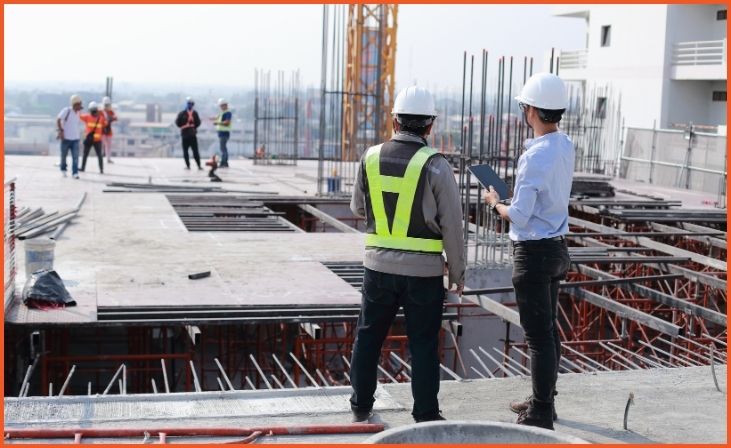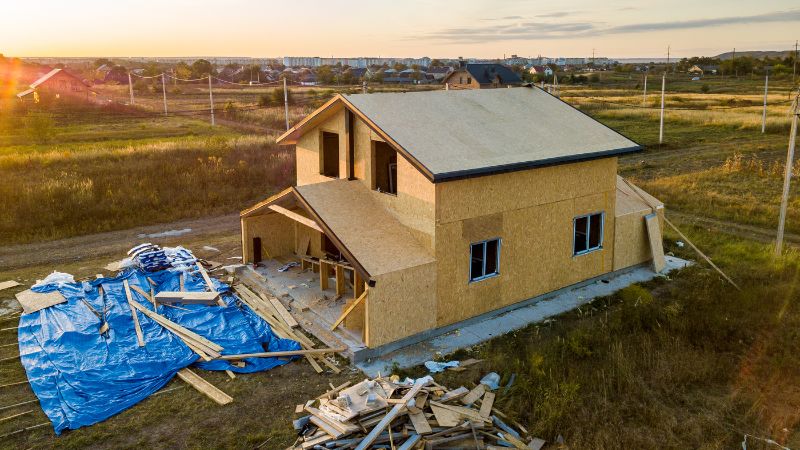Modular construction is revolutionizing the building industry by offering numerous advantages over traditional construction methods. This innovative approach involves constructing sections of a building off-site in a factory-controlled environment, which are then transported and assembled on-site. The popularity of modular construction is soaring due to its ability to significantly reduce construction time, lower costs, and enhance sustainability.
Additionally, it offers superior quality control, increased safety, and greater design flexibility. As more industries and sectors recognize the benefits of modular construction, it is becoming the preferred choice for projects ranging from residential homes to large-scale commercial buildings. In this blog, we will explore the nine key benefits of modular construction, demonstrating why it is a game-changer for the construction industry.
9 Key Benefits Of Modular Construction
Reduced Construction Time

One of the most significant benefits of modular construction is the substantial reduction in construction time. Traditional building methods can take several months or even years to complete, whereas modular construction can reduce this timeframe by up to 50%. This efficiency is achieved by simultaneously performing site work and constructing building modules in a factory. Since the modules are built in a controlled environment, there are fewer weather-related delays and disruptions. Additionally, the assembly process on-site is streamlined, as the pre-fabricated modules are quickly put together, further speeding up the completion time. This faster construction timeline is particularly advantageous for projects with tight deadlines or those requiring quick occupancy, such as schools, hospitals, and commercial spaces.
Cost Efficiency
When compared to standard building ways, modular construction saves a lot of money. The controlled factory environment reduces labor costs, as skilled workers can efficiently produce building modules without the typical on-site challenges. Moreover, the standardized production process minimizes material waste, which is a common issue in traditional construction. This less loss means that the prices of materials are lower. Additionally, the shorter construction timeline leads to savings on financing and overhead costs. By reducing labor, material, and time expenses, modular construction provides a cost-effective solution for a variety of building projects, making it an attractive option for developers and property owners looking to maximize their investment.
Read Also: Construction Techniques For Energy Efficient Buildings
Enhanced Quality Control
Controlling quality is an important part of any building project, and modular construction does a great job of it. The factory setting allows for stringent quality control measures to be implemented throughout the production process. To make sure it meets the highest standards, each part is carefully inspected and tested. This controlled environment minimizes the risk of errors and defects, which are more common in on-site construction due to variable conditions and human factors. The consistent quality achieved in modular construction results in buildings that are durable, reliable, and of superior craftsmanship. This level of quality control is particularly beneficial for projects that require high standards of precision and performance, such as healthcare facilities and high-tech industries.
Sustainability and Environmental Benefits
Traditional building methods are less environmentally friendly than modular construction. The factory-controlled setting significantly reduces material waste, as precise measurements and efficient production techniques are employed. Additionally, the modular approach allows for better resource management and recycling of materials. The reduced construction timeline also means less energy consumption and lower emissions from construction equipment. The fact that modular buildings can be taken apart and moved makes them better for the environment than regular buildings. These sustainability advantages make modular construction an eco-friendly choice, aligning with the growing demand for green building practices and sustainable development.
Increased Safety

Safety is a paramount concern in construction, and modular construction offers enhanced safety benefits. The factory environment is highly controlled, reducing the risks associated with traditional on-site construction, such as falls, accidents, and exposure to hazardous conditions. Workers in a factory setting are less likely to encounter the dangers present on a construction site, leading to fewer injuries and accidents. Additionally, the assembly process on-site is quicker and more straightforward, minimizing the time workers spend in potentially hazardous environments. The overall safety improvements in modular construction contribute to a healthier and more secure working environment for construction professionals.
Design Flexibility
Despite what many people think, modular construction gives you a lot of freedom in how you plan your building. Architects and designers can create customized layouts and incorporate unique features into modular buildings, just as they would with traditional construction methods. Modular construction allows for the integration of various architectural styles, innovative design elements, and advanced technologies. The ability to combine and configure modules in different ways enables the creation of diverse and aesthetically pleasing structures. This flexibility is particularly advantageous for projects that require tailored solutions, such as residential developments, educational facilities, and commercial spaces.
Better Project Management
Modular construction enhances project management by providing greater predictability and control over the building process. Building units off-site makes it possible to make specific plans and schedules, which lowers the risk of problems and delays that come up out of the blue. The streamlined production process ensures that each module is completed on time and meets the required specifications. Additionally, the ability to work concurrently on site preparation and module construction optimizes project timelines. This improved project management leads to more efficient use of resources, better adherence to budgets, and higher client satisfaction. Modular building is a good choice for companies who want to reduce risks and make sure projects are completed successfully because it is predictable and reliable.
Superior Structural Integrity
The structural integrity of modular buildings is often superior to that of traditionally constructed buildings. Each module is designed and built to withstand the rigors of transportation and installation, resulting in a robust and durable structure. Modular buildings meet or go beyond building rules and standards because they are made with modern construction methods and high-quality materials. Additionally, the precise assembly process and rigorous quality control measures contribute to the overall strength and stability of modular structures. Because they are more structurally sound, modular buildings are good for many uses, such as household, business, and industrial ones.
Future-Proofing and Scalability

Modular construction offers excellent future-proofing and scalability benefits. As the needs of a building or its occupants change over time, modular buildings can be easily expanded, modified, or relocated. Additional modules can be added to existing structures with minimal disruption, allowing for seamless scalability. This adaptability is particularly valuable for businesses and institutions that anticipate growth or changes in their space requirements. The ability to future-proof buildings through modular construction ensures that they can evolve and meet new demands, providing long-term value and flexibility for property owners and developers.
Read Also: Major Challenges Facing The Construction Industry Today
Conclusion
Modular construction is transforming how we build, offering unparalleled advantages in speed, cost-efficiency, quality, and sustainability. Its ability to deliver projects faster and more economically without compromising on quality makes it an ideal choice for a wide range of building projects. Modular construction stands out as a forward-thinking solution as the demand for sustainable and efficient construction methods grows. Embracing this innovative approach can lead to smarter, safer, and more environmentally friendly building practices, paving the way for the future of construction.
FAQs
What is modular construction?
Modular construction is a method where building sections, or modules, are constructed off-site in a factory and then assembled on-site to create the final structure.
Is modular construction more expensive than traditional methods?
No, modular construction often reduces overall costs due to shorter build times, reduced labor expenses, and minimized material waste.



